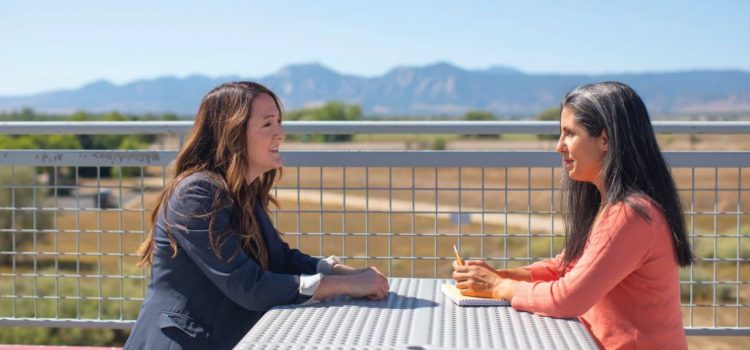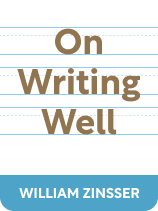

This article is an excerpt from the Shortform book guide to "On Writing Well" by William Zinsser. Shortform has the world's best summaries and analyses of books you should be reading.
Like this article? Sign up for a free trial here .
How can an interview bump up your nonfiction writing? What are the dos and don’ts of a good interview?
When writing nonfiction, incorporating quotes and perspectives from other people can bump up the piece by adding engagement, emotional appeal, and humanity. However, there are some things you need to keep in mind when writing an interview.
Here’s how to conduct a good interview, with tips from American writer William Zinsser.
Writing About Interviews
In his book On Writing Well, William Zinsser encourages writers to include interviews incorporating direct quotes and information from another person into their pieces. By including someone else’s perspective in their own words—not yours—your writing will have more humanity and be more engaging.
(Shortform note: Other experts also encourage the use of interviews, noting that they can engage your reader through pathos—an emotional appeal to your audience. By discussing a topic with someone who knows about or is directly affected by it, you’ll connect with your reader. For example, a news story about a flood will be more engaging if the journalist includes an interview with a family whose home was destroyed by the flood than if the journalist just gave the statistics about the flood damage.)
Here are Zinsser’s tips on how to conduct a good interview:
1) Identify who you want to interview. Find someone who knows about the topic you’re covering or would be an interesting profile. Be sincere about your interest in this person and what they have to say. Don’t worry about inconveniencing them with an interview—most people jump at the chance to talk about themselves.
2) Start talking to them, and wait for them to get comfortable. This may mean talking to them multiple times as you gain their trust. You also shouldn’t start taking physical notes yet—that’s a quick way to ensure someone doesn’t relax.
3) As you interview them, find what’s interesting. Don’t be afraid if you don’t know anything about that person’s field. If you don’t know anything about the topic, the average reader probably doesn’t either. Use your lack of knowledge to help guide the interviewee to tell you what you (and ultimately the reader) need to know, and don’t be afraid to ask dumb questions.
4) Be prepared to tell your interviewee to stop so you have time to write things down. Zinsser recommends physically writing things down rather than recording your interview because writing is the whole point. If you record the interview, you become an audio editor. You also risk technological malfunctions with your recorder. In some instances, a recorder can be helpful (such as for capturing diction), but in general, write physical notes.
5) Don’t be afraid to call your interviewee after your conversation if you need clarification on any quotes or ideas.
6) When incorporating the interview into your piece, be sure to uphold the integrity of your interviewee, but also don’t be afraid to rearrange and edit quotes if you can preserve the speaker’s meaning. Doing so is part of your role as a writer and interviewer: to make your interviewee sound good.
| Tips for Interviewing As Zinsser notes, interviews can be intimidating for many writers. But don’t let this stop you from doing an interview. Your first few interviews may not go smoothly, but you’ll develop your skills the more you do them. Experts also offer tips for conducting a good interview: Before the interview: 1) Choose the interview format. Experts recommend phone calls, video calls, or in-person meetings, but avoid email because you’ll miss important things like tone and facial expressions. Decide which format is right for your story. For example, if you’re doing a profile of the person you’re interviewing, it’s better to meet in person or on a video call. This will give you more detail to work with—what were they wearing? How did they say that line? What kind of mannerisms did they have? 2) Come prepared. While Zinsser advises against using recorders, some journalists use them. But always have a backup—either use two recorders or one recorder and handwritten notes. That way, if your recorder malfunctions, you won’t lose your interview. 3) If possible, don’t give the interviewee questions in advance. If your interviewee over-prepares, you won’t get as many honest, casual answers during the interview. The spontaneity will force you to listen critically in the interview so you can ask a relevant follow-up question to their answers. 4) Introduce yourself. Let your interviewee know who you are, what you’re writing, and what publication you’re writing for (if any). This lets them know upfront who you are and where they stand with you. During the interview: 1) Be yourself. An interview is just a conversation to learn more about a person or subject. So don’t turn into a stuffier or more robotic version of yourself, otherwise people won’t feel comfortable enough to talk to you. 2) Let your interviewee talk—be an active listener and avoid interrupting him. 3) Give yourself enough time to talk to each other—generally this means at least 30 minutes. 4) Stay focused. If you and your interviewee explore a tangent, be sure to get back on track to your main point. 5) Be courteous and respectful to your interviewee. This means letting them know you’re recording (if you are) and saying thank you afterward. If possible, send your interviewee the published article. |

———End of Preview———
Like what you just read? Read the rest of the world's best book summary and analysis of William Zinsser's "On Writing Well" at Shortform .
Here's what you'll find in our full On Writing Well summary :
- A back-to-basics approach to the craft of writing
- How to practice simple, clear, and engaging writing—even if you're not a writer
- How to effectively put your ideas into words







Great article, thank you.
Is there a book on this topic you can recommend?
Regards,
FB